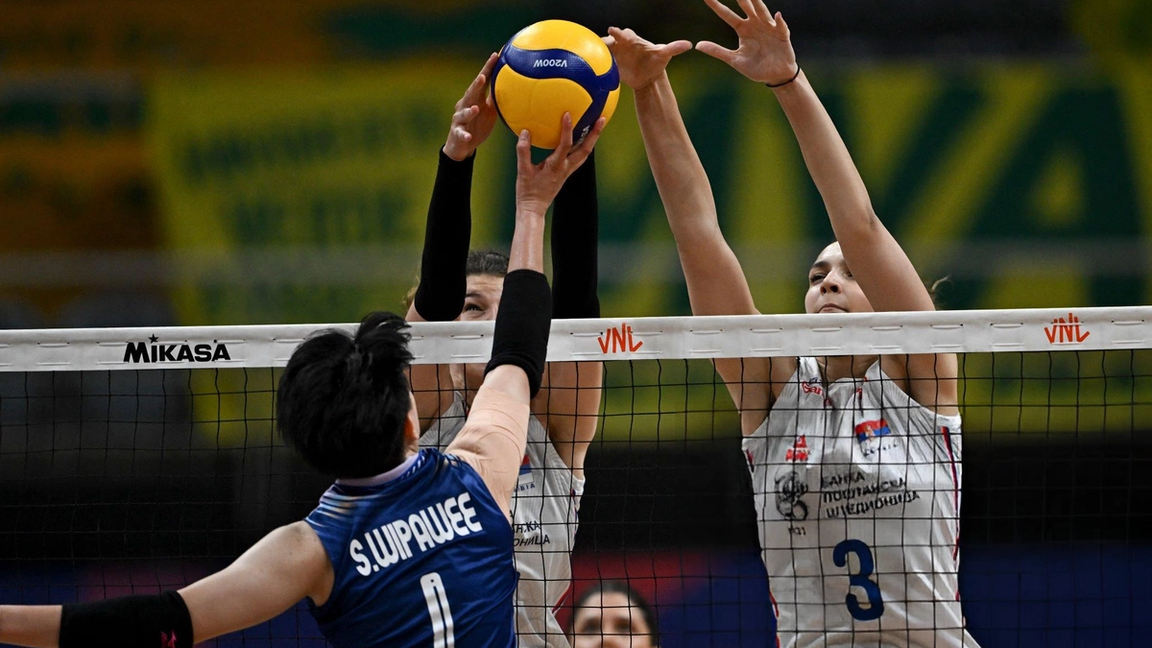
Master the Angle — Outplay the Block: 3 Game-Changing Volleyball Angles Explained

Matt Nikishin
•
1st August, 2025
In the fast-paced world of volleyball, power alone doesn't win matches. What separates great hitters from the rest is their ability to outthink defenders and manipulate the block.
Whether you're a beginner or aiming to play competitively, learning how to master the angle is a pivotal skill.
The focus isn’t always on blasting through a block—it’s about outplaying it with smart placement.
Why Mastering Angles Matters in Offensive Play
Hitting with angles creates more scoring opportunities and reduces errors. If defenders know you're only going to hit hard, they'll adjust quickly. But if you can vary your shot direction using different angles, you become unpredictable—and that’s your biggest weapon on the court.
Core Concept 1: The Line Shot
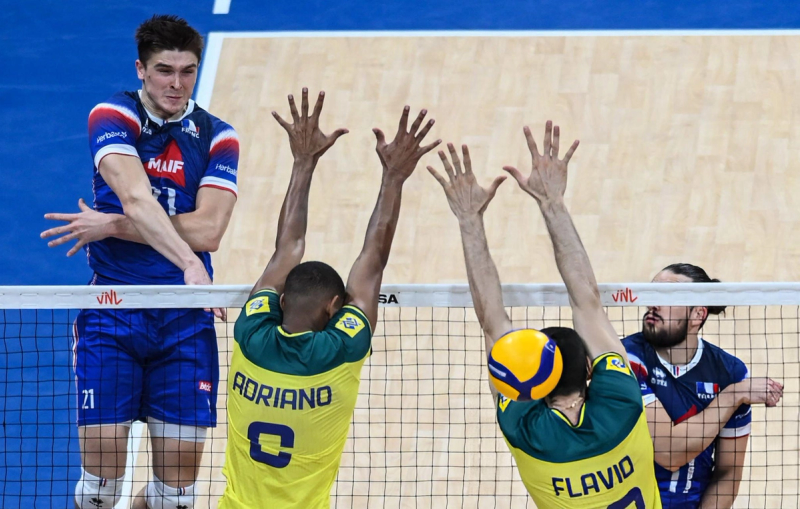
What is a Line Shot?
A line shot targets the sideline closest to the hitter, usually between the outside blocker and the antenna. It's a straight, narrow angle that's difficult to defend when executed well.
When to Use the Line Shot
- When the blocker shifts too far inside, leaving the line open.
- During tight sets that make cross-court hitting risky.
- When the defense stacks their coverage toward the middle or opposite side.
Common Mistakes and Fixes
MistakeFixTelegraphing the shot earlyKeep your shoulders neutral until the last momentHitting out due to poor timingFocus on early contact and wrist controlNot recognizing open spacePractice reading blocker and defender positions
Core Concept 2: The Cross-Court Shot
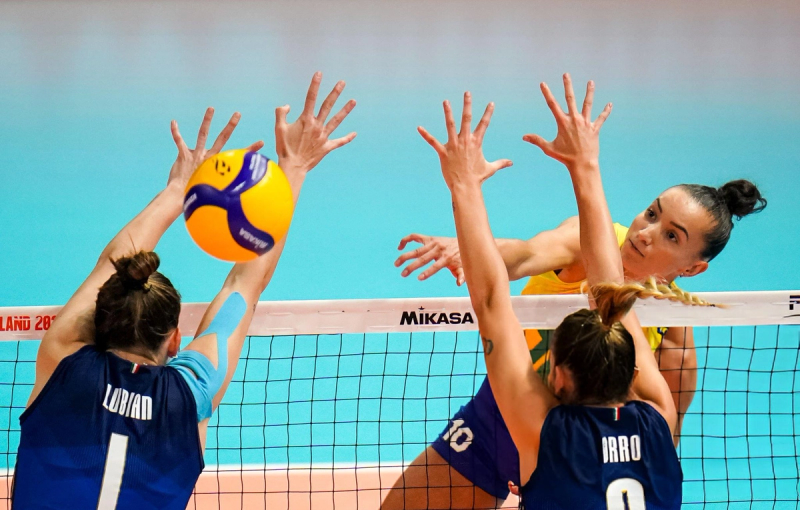
What is a Cross or Diagonal Shot?
A cross-court shot is aimed diagonally across the court, typically toward the deep corner or opposite sideline. It’s a favorite for outside hitters because it covers more distance and is harder to block.
How to Set Up a Successful Cross-Court Attack
- Start your approach wider outside to open up the angle.
- Focus on hitting later in your jump for a sharper angle.
- Keep the block guessing by mixing in line shots occasionally.
Situations Where Cross Is Most Effective
- When the block is late getting into position.
- If the opposing libero is pulled out of zone 5.
- Against single blockers or mismatches in timing.
Core Concept 3: The Seam Shot
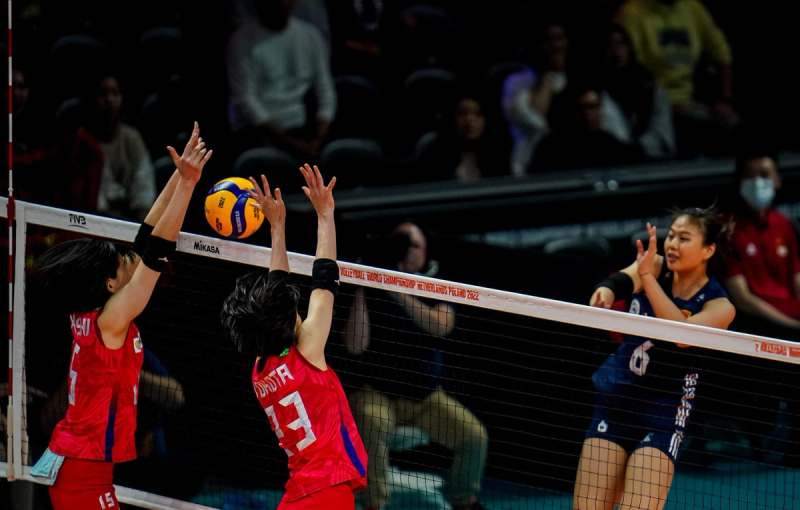
What Is the Seam?
The seam is the space between two blockers. If they fail to close hands or timing, a gap appears—a prime target for smart attackers.
Reading the Block to Identify a Seam
- Look for blockers who don’t jump in sync.
- Watch for hands drifting apart mid-jump.
- Scan the court quickly before takeoff to spot the gap.
Execution Tips for Seam Hitting
- Use fast arm swings to capitalize on openings.
- Aim just inside the blockers' hands, not directly at them.
- Mix in seam shots occasionally to exploit miscommunication.
Block Reading 101: Outsmarting the Defense
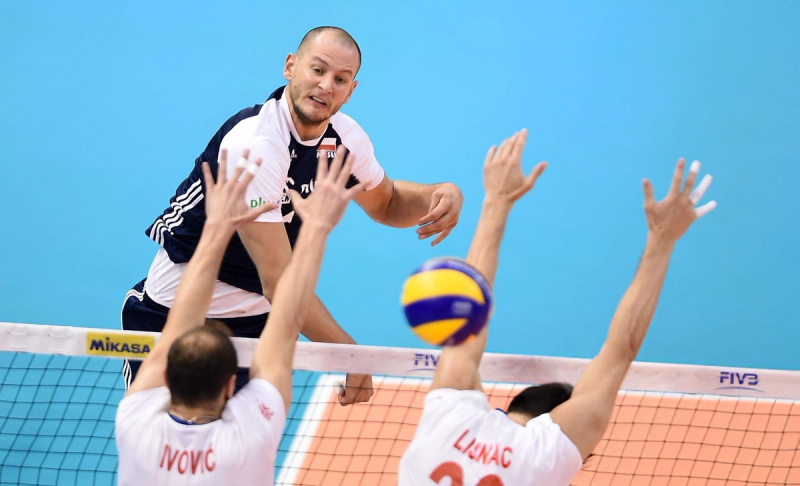
Identifying Late Blocks
A block arriving late can’t press over effectively. Use speed and sharp angles to beat them before they’re set.
Spotting Weak Seams Between Blockers
Always look at the blockers’ hands and body spacing. If there's even a small gap, aim for it.
Recognizing Overcommitment and Using It
If a blocker cheats left or right, hit the opposite direction. They won’t be able to recover in time.
Top Drills to Master Angle Hitting
Place targets or mats in different zones. Practice hitting them from various set heights and angles.
Partner Toss and Angle Adjustment Routines
A partner tosses balls from mid-court while you focus on hitting:
- Line
- Cross
- Seam
Contact Point Training for Accuracy
Work on hitting the ball:
- Earlier for line shots
- Later for cross-court
- Center for seam or roll shots
Mindset: Shifting from Power to Precision
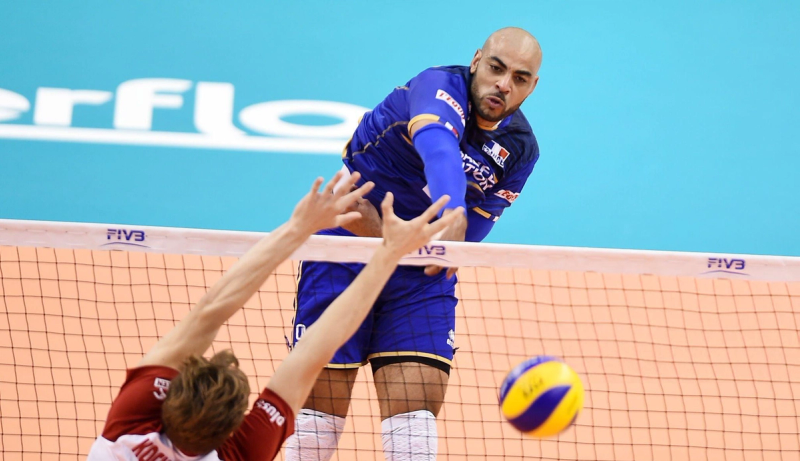
Understanding Space Over Strength
Trying to blast through the block every time leads to errors. Instead, find the open space and exploit it.
Developing Game Awareness
Great attackers don’t just hit—they see the whole court. Learn to read defenders and anticipate their movements.
Boosting Scoring Consistency Through Smart Play
Smarter hitting = more points and fewer mistakes. Over time, your stats will improve without swinging harder.
Conclusion: Outsmart, Outplay, and Outscore
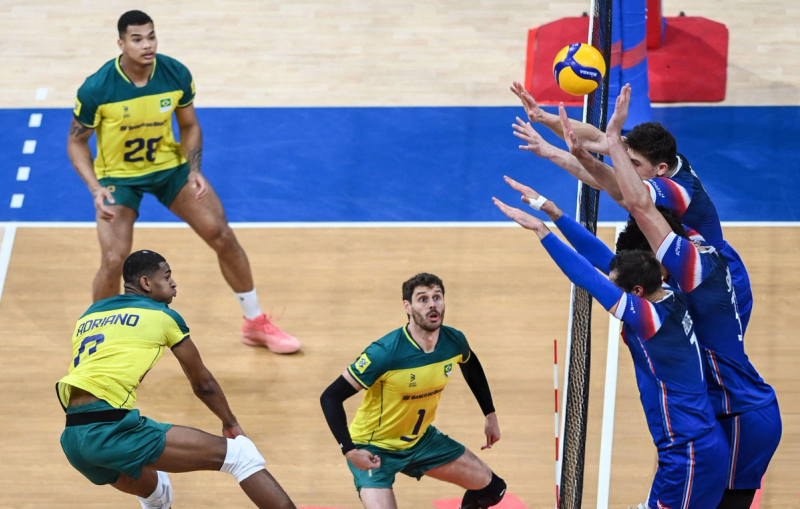
Volleyball is as much a mental game as it is physical. By learning to master the angle, you can consistently beat the block, score more points, and reduce errors. Focus on shot variety, footwork discipline, and intelligent reading of defenders. Whether it’s line, cross, or seam—each angle gives you a new way to win.
